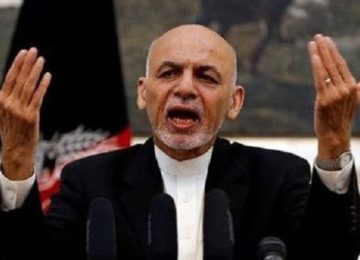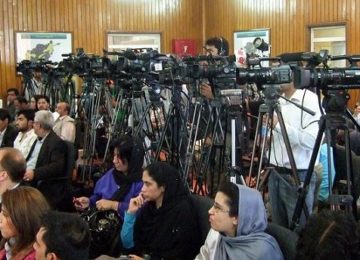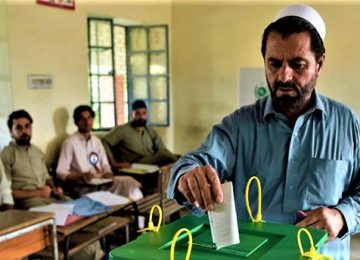Opposing interests cannot lead to ‘common ground’
In mid-March 2017, Pakistan had warned US of resolving the messy situation in Afghanistan, or Russia may well step in to clean up the advances of Taliban and the ISIS/IS. In February 2017, public admission by Gen. Nicholson that Taliban had cornered the Afghan forces can only be viewed as complete failure of US/NATO strategy since they first put boots on ground in 2001. That is a long duration for a war by any standard. It has cost half a trillion dollars and more than 150,000 lives so far.
A pertinent question arising here is why all peace efforts pursued by the US in Afghanistan have excluded Iran and Russia?
For starters, lack of trust and conflict of interest seem like simple answers, however the reality on ground in far more complicated.
Afghan and American officials feel Russia may be arming and providing support to the Taliban in order to overthrow the Kabul regime. Russia’s decision to go ahead with meeting a in April 2017 to possible resolution of Afghan conflict has proven to be deeply unsettling for US and Afghan dispensation.
Russia’s efforts are aimed at putting an end to the conflict so that it does not spread further in Central Asian countries and spill over into her own backyard. Russia has categorically denied supplying arms to Taliban but has created bridges for communication.
Moscow has also suggested a strategy of division by lifting sanctions on some groups of militants so that they can be part of the process to restore peace in war-torn Afghanistan. Kremlin has supported US-led military initiatives but has as vociferously opposed failure under the US watch to stop the poppy production; revenues from which have been funding both the sides in the war.
The situation vis-à-vis Iran is also complicated. Tehran fears that Kabul might be as an anti-Iran proxy by the US. To circumvent such a potential threat, the Middle Eastern Institute, in a report states that Iran has ‘worked with Taliban factions based in Afghanistan’s three western provinces that border Iran. In January, officials from Afghanistan’s western Farah province, which borders Iran, claimed that Iran’s Islamic Revolutionary Guards Corps have been arming and training the Taliban. Farah Provincial Council Chair Jamile Amini accused Iran of sending fighters to join the Taliban.’ (May 17, 2017). Therefore, US-Iran tensions have also spilled over in Afghanistan in various forms.
With so many years of failure and little progress, one has to ask; Are US interests in Afghanistan purely altruistic? Sadly, No.
US interests in Afghanistan are commercial as well, reportedly. According to NYT, Trump is drawn to “Afghanistan’s vast mineral wealth, which his advisers and Afghan officials have told him could be profitably extracted by Western companies. To explore the possibilities, the White House is considering sending an envoy to Afghanistan to meet with mining officials. Last week, as the White House fell into an increasingly fractious debate over Afghanistan policy, three of Mr. Trump’s senior aides met with a chemical executive, Michael N. Silver, to discuss the potential for extracting rare-earth minerals. Mr. Silver’s firm, American Elements, specializes in these minerals, which are used in a range of high-tech products.” (July 25, 2017). This, Trump feels, can be a reason to stay engaged in Afghanistan.
There is another interest the US has in Afghanistan. According to a report by Stockholm International Peace Research Institute (SIPRI), the US is among the top five major countries of the world producing and supplying arms to other nations. Reportedly, according to a Pentagon’s Foreign Military Sales program, the US State department approved of possible sale of grenade launchers, rifles and machine guns to Afghanistan as per Defense Security Cooperation Agency’s press release on August 18, 2016. It was in 2002 that the US allowed US arms companies to sell both military equipment and arms to Afghanistan.
In the given situation of rivalries within rivalries, the US has decided to take India as a partner in this regional quagmire offering, to the latter’s glee, more space in Afghanistan. India’s interests in Afghanistan are Pakistan-specific and also aimed to fulfil her erstwhile desire of becoming the regional Super-power. A piper’s dream dwarfed by China – but a dream sought to become a realisation rather desperately by India. By being friendly with Afghanistan and having projects ongoing on Afghan soil, India finds it easier to ‘monitor’ her arch rival Pakistan. India also views good relations between Afghanistan and Pakistan as detrimental to her interests.
Given a complex landscape of many players with (mostly) conflicting interests, it was amusing to hear the US Secretary Defense James Mattis, on his visit to Pakistan, coming up with the familiar mantra of ‘Do more’. Someone as seasoned and experienced as Mr Mattis should be the first person to understand these complexities where Pakistan can not solely dictate or manipulate the geo-political situation in the region, especially Afghanistan, anymore.
The writer Yasmeen Aftab Ali is a lawyer, academic and political analyst. She has authored a book titled ‘A Comparative Analysis of Media & Media Laws in Pakistan.’ She can be contacted at: yasmeenali62@gmail.com and tweets at @yasmeen_9
© Center for Research and Security Studies (CRSS) and Afghan Studies Center (ASC), Islamabad.








